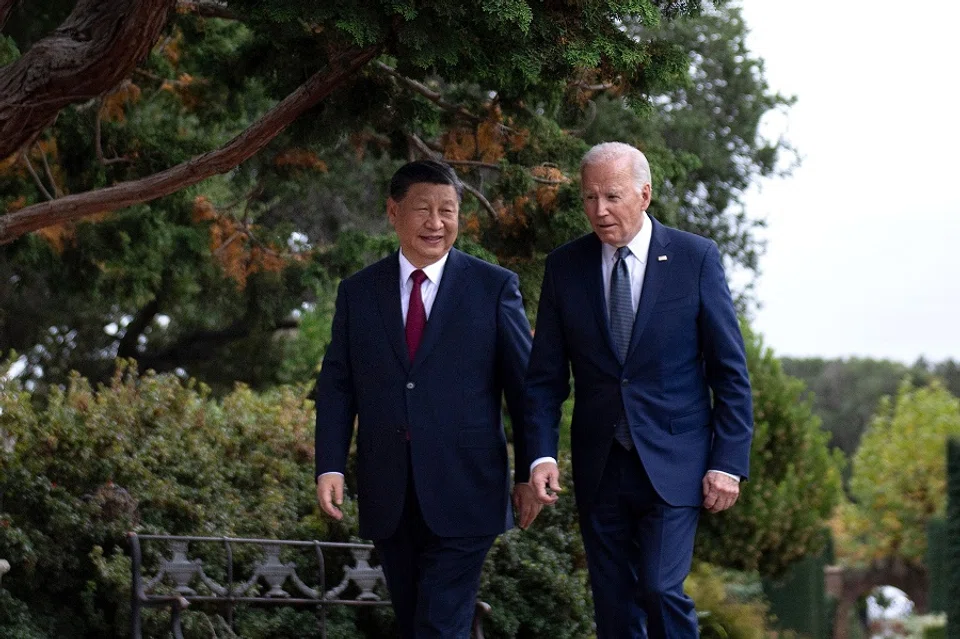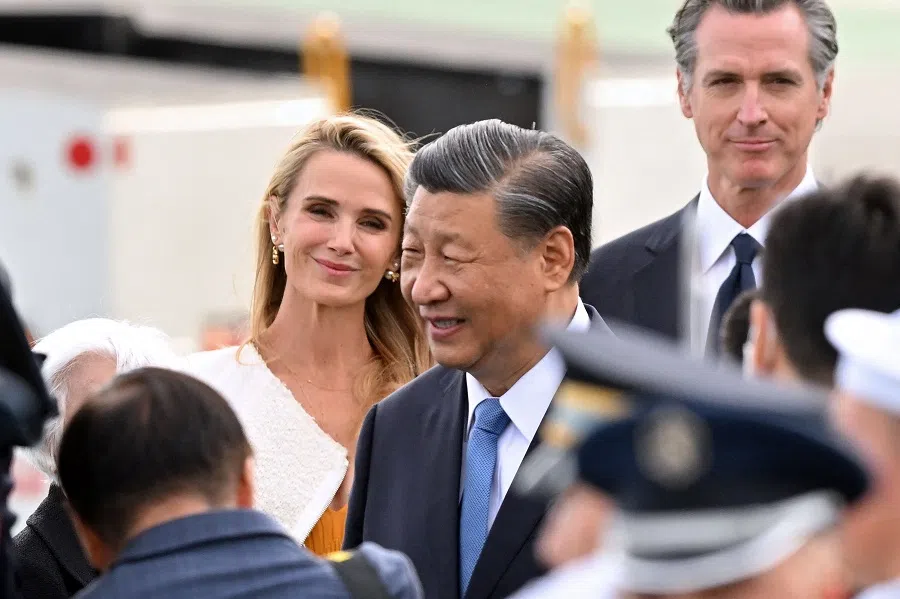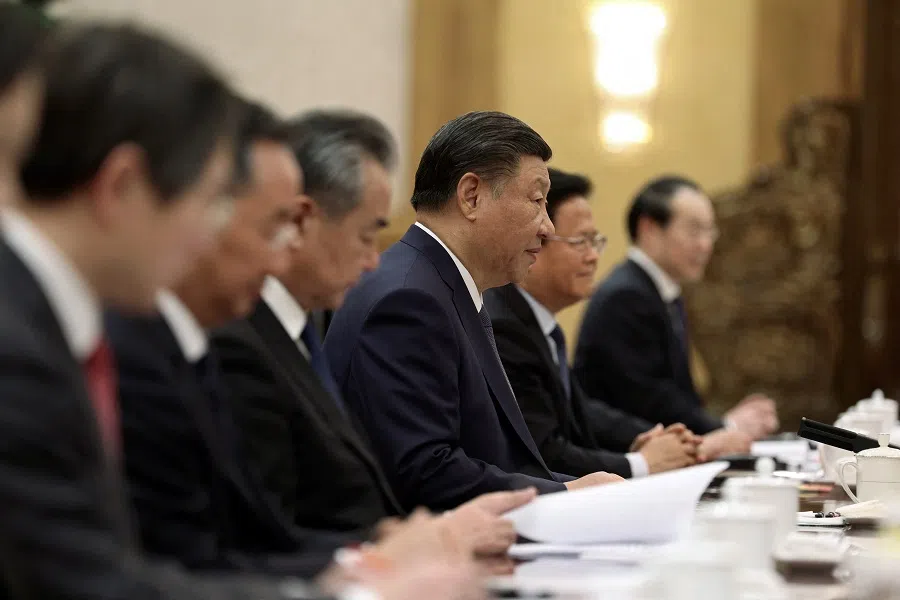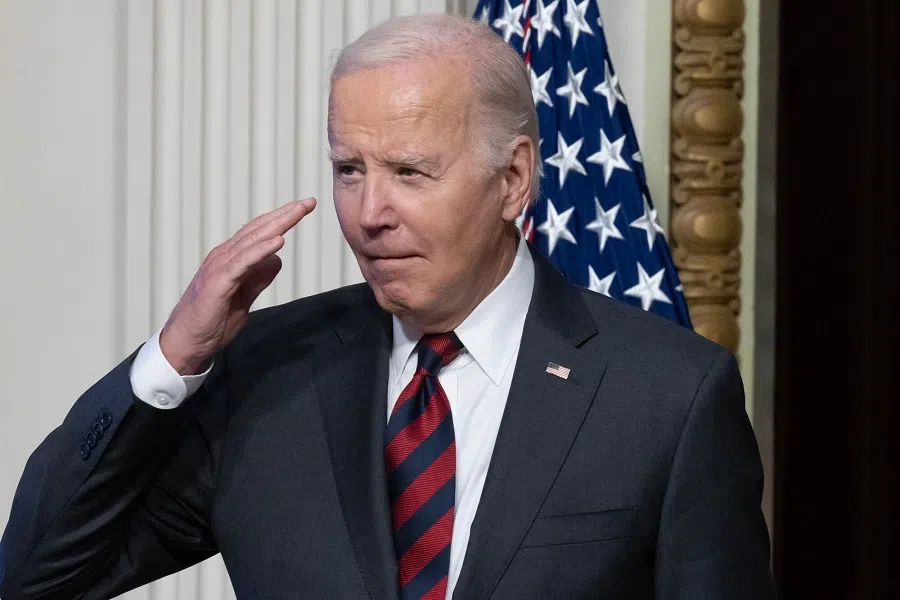Fruitful summit a sign of improving US-China relations?
Both China and the US needed a successful summit to take place for their own domestic reasons, and the San Francisco meeting achieved that, says EAI senior research fellow Lance Gore. However, the real question is whether the US is actually going for a win-win cooperation with China, or a lose-lose situation hoping that China will lose more?

The recently concluded Xi-Biden summit in San Francisco took many by surprise. In the last six years, over the course of two US presidencies, the US-China relationship has plummeted, reshaping international politics. There has also been talk of the two countries being destined for war. Expectations for this summit were low, but at the very least, the summit temporarily stemmed the long decline in bilateral relations, bucked the trend of decoupling and delinking, reached a series of agreements on strengthening exchanges, opened some channels for interaction, and put in place follow-up actions.
Some achievements
The Chinese side shared a list of cooperation agreements reached between the two sides, including increasing high-level contacts, restoring communication and consultation channels between the two militaries, establishing a joint working group to curb the epidemic of fentanyl, and significantly increasing flights between the two countries.
Other areas of exchange and cooperation include artificial intelligence (AI), military, law enforcement, culture, sports, youth, business community, economy and trade, arms control, non-proliferation, disabled people, maritime issues, export control and foreign policy planning. Consultations on renewing China-US scientific cooperation have also been initiated.
Biden announced that he and Xi agreed that they would take each other's phone calls and Xi unveiled a plan to invite 50,000 American youths for exchange and study programmes in China in the next five years. The two countries' commerce ministers also held talks on the sideline.
What is particularly important is that Xi denied any plans to unify Taiwan by force between 2027 and 2035...

California spared no effort to prepare for Xi's visit and APEC, sprucing the city's appearance and clearing up the homeless population. Gavin Newsom, the Democratic governor who may run for president, was at the airport to greet Xi Jinping. He had just returned from a visit to China, where he received a star-like welcome and a meeting with Xi Jinping because he advocated strengthening investment, trade, exchanges and cooperation between California and China. Xi also hinted that China might send new pandas to California soon.
President Biden also played up his personal relationship with Xi. He recounted the more than 60 hours of conversations between the two when they were vice-presidents, and specifically found a photo of Xi on the Golden Gate Bridge when he first visited the US in 1985. What is particularly important is that Xi denied any plans to unify Taiwan by force between 2027 and 2035 when asked by reporters. As such, a major source of tension in the bilateral relationship is expected to be alleviated.
Troubled times for Xi
This dramatic turn, even if temporary, is worth examining. Both Xi and Biden both needed a successful summit to boost their respective domestic standing.
Xi's policies and leadership have been questioned due to a series of events: the economic downturn, with the three engines of investment, consumption and exports stalling simultaneously; the slump in private sector investment and relocation of some supply chains and big foreign firms out of China; the collapse of the housing market and rise in local government debts; and the bleak prospects of a recovery for Hong Kong in the aftermath of mass protests.
There was also the recent corruption scandal at the top leadership of the People's Liberation Army and the "disappearance" of Xi's new Foreign Minister Qin Gang. In addition, the absence of foreigners on the streets of China's cities has cast doubt on China's policies for reform and opening up.
Domestic dissatisfaction with government policies and direction has gathered pace, and there have been more allegations popping up on social media. There was also a wave of sizeable protests around the 20th Party Congress last year. Many of these woes are related to deteriorating China-US relations in some way. A successful summit could help revive Xi's reputation and restore confidence in the economy.
Explaining Biden's enthusiam
On the other hand, Biden's enthusiasm for the summit seems a bit puzzling: first, it goes against the anti-China consensus in the US and is somewhat politically incorrect; second, the draconian measures taken by the administration to contain China seem to be quite successful and the US economic situation is far better than that of China. Hence there is no necessity to please China.
The US election year is approaching and Biden has been lagging behind Trump in recent polls. The traditional practice of canvassing votes in US election years is to play the anti-China card rather than befriending China. However, over the past year or two, it is the Biden administration that has taken the initiative to interact with China and mend bilateral relations. This summit was also mainly facilitated by the US.

Perhaps we can find some clues from a broader international perspective.
Firstly, there is no doubt that since the trade war between China and the US began, the global situation has worsened and become more turbulent. The Covid-19 pandemic was but a short-term factor. The reversal in China-US relations has had a long-term structural impact on the international system. The markets, supply chains and international division of labour established in the era of globalisation have fragmented; the restructuring has been difficult, painful and slow. In any case, whatever emerges at the end of the process will not reach the level of efficiency attained in the era of globalisation. Therefore prosperity may not return, at least not anytime soon.
Defence and security spending has soared, particularly in the Asia-Pacific. The Russia-Ukraine war, with no ending in sight, and the recent outbreak of the Hamas-Israeli war, have left the US in a difficult situation. The escalation and spillover of these hot wars are possible at any time, and it will be difficult for the US to contain them given its domestic problems and financial strains. If a larger-scale war breaks out with China at this time, it will be World War III. For the US, therefore, it is urgent to ease relations with China and seek China's cooperation on a range of international affairs.
Secondly, since Trump launched the trade war, the international prestige of the US has declined, especially since the war between Hamas and Israel broke out. Biden's unconditional support for Israel has met with opposition in the Middle East and around the world (and even within the US government), even though it was Hamas that launched the terrorist attack on Israel in the first place.
This is very similar to the third world's reaction to the Russo-Ukrainian War: although Russia was clearly the aggressor, many countries around the world (including India and some ASEAN countries) did not unequivocally condemn the aggression as the US had expected. This indicates that they no longer buy the US narrative readily, perhaps in dissatisfaction with the latter's double standards, abuse of sanctions and interference in other countries' internal affairs. The rise of third world countries is expected to greatly complicate the international situation facing the US.
For the US, a very real question going forward is: is it going for a win-win cooperation with China, or is it continuing on the path that entails losses for both sides in the hope that China will lose more?
Cracks can also be seen within the Western camp: Biden's "middle class-centred" foreign policy is a continuation of the thrust of Trump's "America First" policy. Both have the effect of reducing the obligations of the US and increasing the burdens of its allies. Sometimes the US appears to be plundering them. For example, while urging European countries to boycott Russian energy, the US has made a fortune from selling energy products and weapons at high prices. There are also increased tariff barriers, unilateral sanctions, massive printing of the greenback that allows the US to harvest wealth from others while exporting inflation, forced relocation of supply chains and so on. All these harmed the interests of allies and created the impression that the US is no longer a reliable partner.
In addition, Biden's approval rating in domestic polls has recently lagged behind Trump's, with a majority of polled voters believing that the US is heading in the wrong direction under his leadership. In short, life for the US is not a smooth sail and something must be done about it.
Inescapable cooperation
After six years of quasi-Cold War, the US appears to be running out of ammunition, and China's counterattack, marked by its control of the export of strategic materials, has just begun. For the US, a very real question going forward is: is it going for a win-win cooperation with China, or is it continuing on the path that entails losses for both sides in the hope that China will lose more?
Obviously, the US does not have a clear answer at this stage, but there is a certain unease and distaste in where things are going. The San Francisco summit pressed the pause button on the free fall of bilateral relations, creating a space for reflection.

In comparison, China's calculation is much simpler. As Xi said, US-China relations are not a multiple choice question but a must-answer question. Experience has taught the Chinese Communist Party (CCP) that a bad relationship with the US brings endless troubles that could conceivably reverse its national fortune. What China seeks is a long-term, relatively stable, predictable and productive bilateral relationship.
On 16 November, President Biden posted on social media: "I value the conversation I had today with President Xi because I think that it's paramount that we understand each other clearly, leader to leader. There are critical global challenges that demand our joint leadership. And today, we made real progress."
Xi Jinping said during the meeting with Biden that China and the US cannot do without dealing with each other, and the world cannot bear the consequences of conflict between the two. In summarising Xi's visit, Wang Yi, China's top diplomat, said it injected a dose of stability into a turbulent world.
In addition to the usual issues for cooperation such as climate change, environmental protection, sustainable development, counter-terrorism, arms control and non-proliferation, UN affairs, macroeconomic policies, epidemic prevention and public health, cross-border crime and other non-conventional security threats, breakthroughs in AI in recent years have also increased the necessity and urgency of cooperation on AI. For the first time, cooperation to deal with AI risks has been written into the summit document.
American business leaders spent US$1.27 million for seats at the same table with Xi. They responded to Xi's keynote speech with rounds of applause and three standing ovations during the 35-minute speech.
Promoting world economic recovery and returning to the track of growth also require the coordinated operation of the world's two largest economies, rather than suppressing each other. The American business community does not want to give up the large market of China and hopes that the Chinese government will improve foreign investment environment.
At the joint welcome banquet of the American business community and other groups on 15 November, American business leaders spent US$1.27 million for seats at the same table with Xi. They responded to Xi's keynote speech with rounds of applause and three standing ovations during the 35-minute speech. This scene is in sharp contrast to the normal state of China-US relations in recent years.
Xi appeals to common sense
President Xi's trip to San Francisco can be said to be a rare success since Deng Xiaoping's whirlwind visit to the US in 1979. Xi's performance this time is also remarkable. He avoided ideology and other sensitive topics, used common sense and vernacular to communicate with Americans, and played three common sense cards.
The first one is how to characterise China-US relations - rivals or partners? He said it is the first thing to make clear about. He pointed out that China is the beneficiary and defender of the current international order. "Partnership" is a mutually beneficial cooperative relationship that can also be accepted by those who do not like the CCP.
The second card is to state that China has no intention of surpassing or replacing the US, nor is it betting on the US to lose; therefore the US should not curb and suppress China - a hint of voluntary abdication.
The third card is "common values of humanity": China and the US are socialist on one side and capitalist on the other, but both share the common values of humanity and work for the well-being of the people. To substantiate this claim he cited the statistics that 1,800 CPC members have sacrificed their lives for the cause of poverty eradication in China. In this way, he emphasised the commonalities between the two countries and steered clear of their differences.

Xi also said that China would like to see a confident and prosperous US, and that the US should welcome a peaceful, stable and prosperous China. Mutual respect is a theme he hammered on repeatedly, pointing out that this is the basic etiquette in the interactions among individuals and should also be followed in the relations among nations large and small.
These words are very reasonable and commonsensical, and cannot be objected to by anyone who respects common sense. Biden also reciprocated, reiterating his commitments made in Bali last year, including that the US has no intention of having a conflict with China.
It may be a different story in the long run if China can prove its sincerity in seeking common ground and cooperation with the US.
'Returning to Bali'?
"Returning to Bali" is a slogan put forward by the Chinese to push China-US relations back to the roadmap agreed upon between President Biden and President Xi on the sideline of the G20 meeting in Bali last year. However, the slogan also illustrates the fragility of even the highest-level agreements between China and the US - developments after the Bali summit have completely sidelined the Xi-Biden accord. The San Francisco summit is indeed returning to Bali, but 2024 being a US general election year, "China bashing" will certainly heat up. The probability of "leaving Bali" again is very high.
There is a tacit consensus in the US that it should seize the window period of the next five to ten years to prevent China from surpassing the US. It is expected that the US will do whatever it takes to achieve that objective, until it is fully convinced that China's rise is indeed unstoppable. Biden euphemistically called it "vigorous competition", claiming that his purpose in coming to San Francisco was to make the competition "rational and controllable so that it will not lead to conflict", and added, "that's what I'm all about".
His administration has kept Trump's tariffs in place and gone far beyond Trump in introducing draconian measures in controlling diffusion of cutting-edge technologies to delay or cripple China's semiconductor industry. His administration has created ever expanding sanctioned entity lists, restricted Chinese investment in the US and forbidden US citizens and permanent residents from working for Chinese high-tech companies. He has kept arms sales to Taiwan despite Xi's protest at the summit.
Reasonable conclusions can be drawn from the summit that underlying structural forces will continue to push the two onto a collision course, that bilateral relations are likely to remain bumpy despite the reduced likelihood of a military confrontation, and that at least in the short run Xi's effort to seek common ground and cooperation is unlikely to be successful, given the different objectives that the two sides bring to the table. It may be a different story in the long run if China can prove its sincerity in seeking common ground and cooperation with the US.
This article was first published as an East Asian Institute Commentary.


![[Big read] When the Arctic opens, what happens to Singapore?](https://cassette.sphdigital.com.sg/image/thinkchina/da65edebca34645c711c55e83e9877109b3c53847ebb1305573974651df1d13a)


![[Video] George Yeo: America’s deep pain — and why China won’t colonise](https://cassette.sphdigital.com.sg/image/thinkchina/15083e45d96c12390bdea6af2daf19fd9fcd875aa44a0f92796f34e3dad561cc)